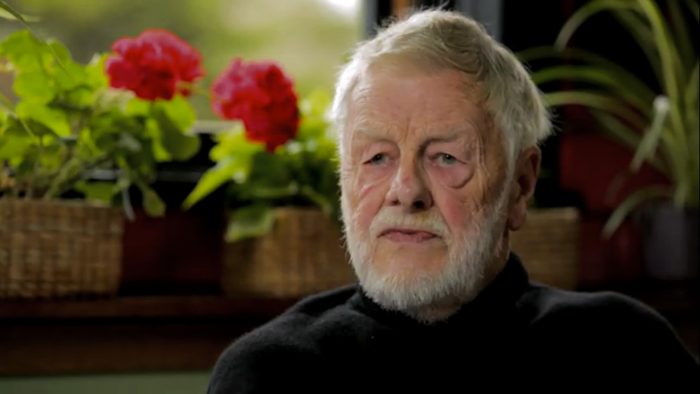
(Image provided by the NFB)
July 27, 2018 – Montreal – National Film Board of Canada (NFB)
The National Film Board of Canada (NFB) is paying tribute to its Atlantic founder, Rex Tasker, who died on July 24 at his home in Musquodoboit Harbour, Nova Scotia.
Tasker headed the NFB’s Halifax-based Atlantic production studio when it opened its doors in 1973, serving as executive producer of the centre until his retirement in 1992. He’d been a passionate advocate for Atlantic filmmaking within the NFB prior to the opening of the studio, which today lives on as the Quebec Atlantic Studio in Halifax, with a production office in St. John’s.
“Rex was a wonderfully generous producer who, along with Shelagh Mackenzie, created the NFB’s Atlantic studio and carved a space for telling stories from inside communities. He believed deeply in the art of documentary film and in enabling local filmmakers with creative tools and resources. We were blessed to have a passionate, provocative thinker build the foundation of our studio—we reap the benefits daily,” said Annette Clarke, executive producer of the Quebec Atlantic Studio.
Born in England in 1933, Tasker studied film at the London Film School and was an advocate for the Free Cinema movement, which saw film as a stimulus for social change. An admirer of the works of the National Film Board, he moved to Canada in 1958 with a desire to work at the NFB.
Prior to opening the Atlantic studio, Tasker worked at the NFB in Montreal for 12 years as an editor, researcher, writer, director and producer. Even before coming to Halifax, he displayed an interest in Atlantic Canada with such works as his short doc Encounter at Kwacha House, a 1967 debate about racial discrimination that features Black Nova Scotian leaders Rocky Jones and Walter Borden, created as part of the NFB’s Centennial project, Challenge for Change.
In 1973, he and his then-wife Shelagh Mackenzie came to Nova Scotia to set up the NFB’s Atlantic production centre, the aim of which was to develop local filmmakers and filmmaking institutions. It was Tasker who brought New Brunswick-born cinematographer Kent Nason—who’d been working for the NFB in Montreal—back to the Maritimes, as part of the fledgling Halifax studio’s small team.
Tasker produced and executive produced approximately 100 films during his tenure as head of the Atlantic studio, including such classics as Martin Duckworth’s 1978 documentary 12,000 Men, on Cape Breton’s labour struggle; Anne MacLeod’s 1980 sand animation short Death in the Spring; Kent Martin’s 1981 Miller Brittain; as well as Hugh Brody and Nigel Markham’s award-winning 1991 co-production, Hunters and Bombers.
Tasker received the John Grierson Genie Award in 1980 for “contribution to Canadian Film in the spirit and tradition of John Grierson” and the Atlantic Festival CBC Pioneer award for “contribution to film in Atlantic Canada” in 1987.
Rex Tasker was interviewed in 2014 for the NFB’s web documentary Making Movie History: A Portrait in 61 Parts, which is now being featured at NFB.ca.
–30–
Associated Links
Making Movie History: A Portrait in 61 Parts